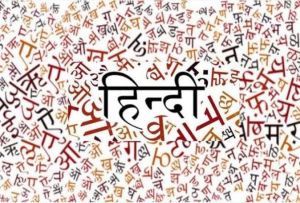Difference between revisions of "Language/Hindi/Vocabulary/Verb-“to-have-to”"
< Language | Hindi | Vocabulary
Jump to navigation
Jump to search
| Line 23: | Line 23: | ||
*and only the third one is of general nature. | *and only the third one is of general nature. | ||
=== Use Of 'Have' + 'To' Infinitive - Hindi To English Translation === | |||
===== Rule 1 ===== | |||
* '''नियम 1.''' 'Has to', 'have to' को Present Tense में, 'had to' को Past Tense में तथा 'will have to', 'shall have to' को Future Tense में मुख्य क्रिया के पहले लगाते हैं । | |||
* '''Rule 1.''' Use 'has to', 'have to' in Present Tense, 'had to' in Past Tense and 'will have to', 'shall have to' in Future Tense before the Principal verb. | |||
* '''Examples:''' has to sing or have to sing (गाना पड़ता है या गाना है), had to sing (गाना पड़ा), will have to sing or shall have to sing (गाना पड़ेगा) । | |||
===== Rule 2 ===== | |||
* '''नियम 2.''' जब किसी काम को अनिवार्य रूप से करना होता है वहाँ अनुवाद करते समय इनका प्रयोग करते हैं । | |||
* '''Rule 2.''' When there is an essentiality of doing some work then these are used while translating. | |||
==Examples== | ==Examples== | ||
Revision as of 09:19, 9 October 2021
Verb “to have to” in Hindi
Rule
The verb “to have to” or “must” is rendered in three different ways in Hindi:
- Tum ko jānā paṛegā?,
- Tum ko jānā hai? or
- Tum ko jānā cāhi(y)e?
However, each of these sentences reflects a particular situation.
- The first sentence implies that there is an obligation from a third party,
- the second includes a temporal factor, i.e. that the obligation will take place in the future,
- and only the third one is of general nature.
Use Of 'Have' + 'To' Infinitive - Hindi To English Translation
Rule 1
- नियम 1. 'Has to', 'have to' को Present Tense में, 'had to' को Past Tense में तथा 'will have to', 'shall have to' को Future Tense में मुख्य क्रिया के पहले लगाते हैं ।
- Rule 1. Use 'has to', 'have to' in Present Tense, 'had to' in Past Tense and 'will have to', 'shall have to' in Future Tense before the Principal verb.
- Examples: has to sing or have to sing (गाना पड़ता है या गाना है), had to sing (गाना पड़ा), will have to sing or shall have to sing (गाना पड़ेगा) ।
Rule 2
- नियम 2. जब किसी काम को अनिवार्य रूप से करना होता है वहाँ अनुवाद करते समय इनका प्रयोग करते हैं ।
- Rule 2. When there is an essentiality of doing some work then these are used while translating.
Examples
a) तुम्हें रेलवे स्टेशन जाना पड़ेगा ।
You will have to go to the railway station.
b) उसे अपनी जीविका चलाने के लिए गीत गाने पड़ते है ।
She has to sing songs for her living.
c) उसे स्टेशन पर अपने भाई का इन्तजार करना पड़ा ।
He had to wait for his brother at the station.
d) तुम्हें अपने पिता की सहायता करनी है ।
You have to help your father.
